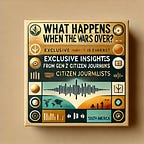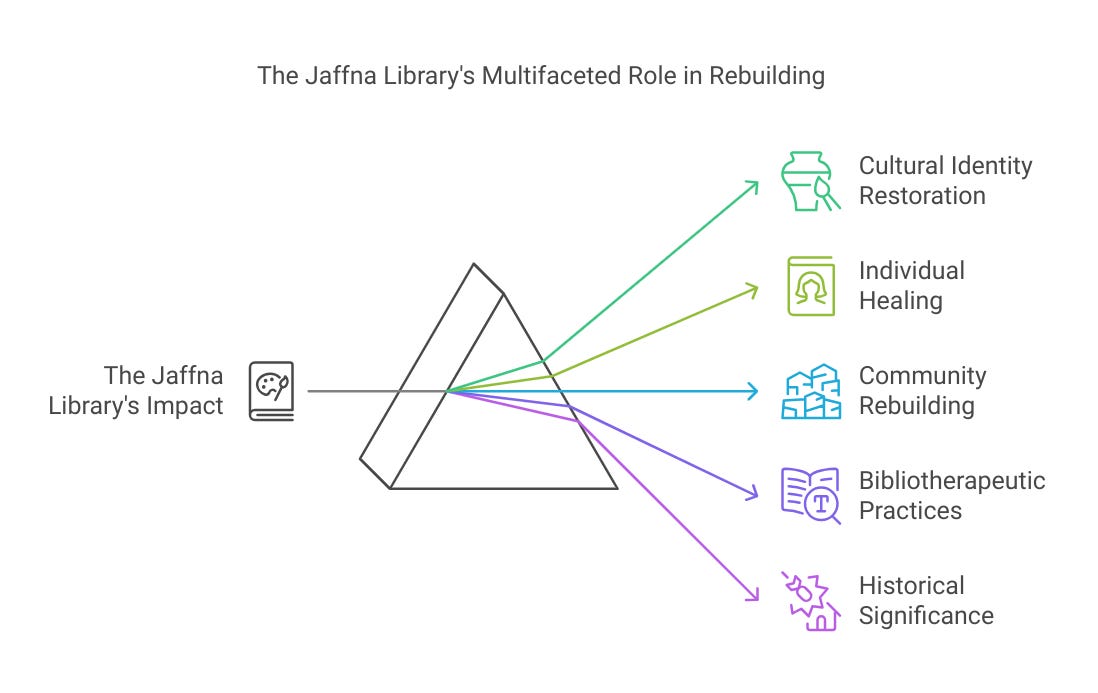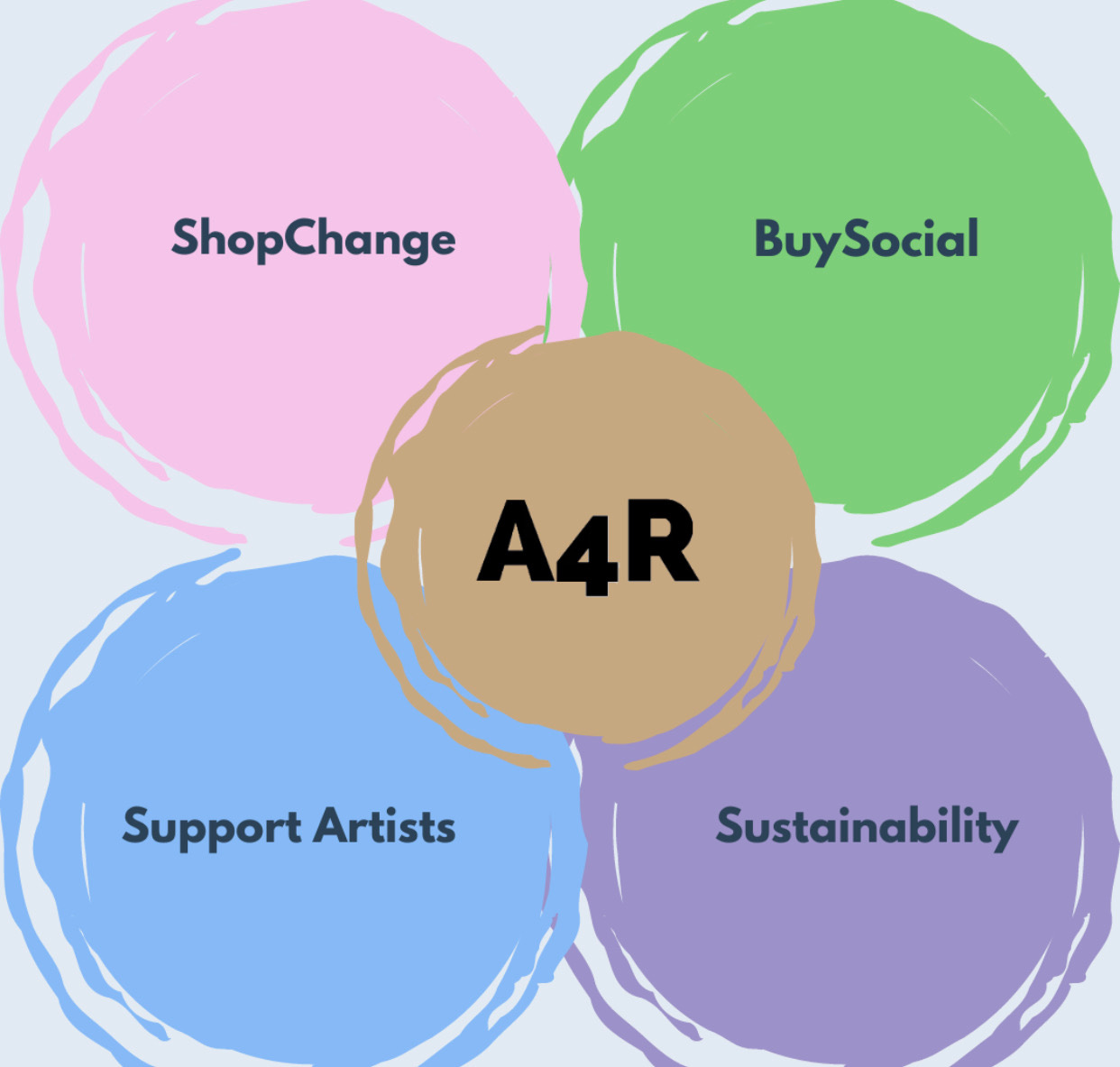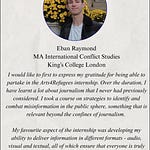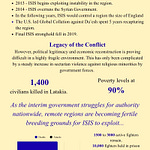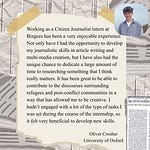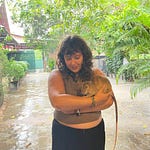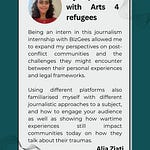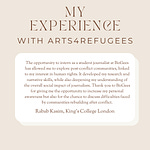The Jaffna Library: Rebuilding Tamil Identity and Community Through Books
Introduction
Books. Not something that most people give a second thought to. Boring. Nerdy.
But what if the books that made up your culture – literature, history, religion – were destroyed?
That is what happened to the Tamil people during the Sri Lankan civil war.
And in today’s post-conflict Sri Lanka, libraries such as the Jaffna Library are integral to the rebuilding of Tamil culture and identity.
In this article I will focus on how the Jaffna Library in Sri Lanka has helped the minority Tamil people to reclaim both their individual and cultural identity after decades of destruction in the civil war. The Library offers bibliotherapeutic facilities: ways for individual readers to reconnect with themselves, understand their own life narrative, and become empowered to shape their future through reading. Bibliotherapy has been proven to be a super important part of post-conflict reconstruction, as individuals can reforge a sense of self after the devastation of war. The rebuilding of the Library has also been a way to reclaim Tamil identity as a whole: as the books and the building itself are restored, so are the literary, historical, and religious elements of the Tamil culture.
Background: Sri Lankan Civil War
The Sri Lankan civil war lasted from 1983 until 2009.
The war was between the Sinhalese majority, who largely controlled the government, and the Liberation Tigers of Tamil Eelam (LTTE), who wanted to create a separate state for the Tamil minority. They failed, however, with the government defeating them in 2009. The Sinhalese population tends to be Buddhist, and the Tamil tend to be Hindu, which has cultural, linguistic, and of course religious implications on their respective identities. Rather than just a clash of cultures and ethnicities, however, recent analyses of the civil war suggest that the conflict was a result of British imperialism, which left both groups struggling to reclaim the power and identity they had before Western colonisation.
Now, in post-conflict Sri Lanka, the Tamil people are still largely displaced. Their cultural, linguistic, and Hindu landmarks continue to be overruled by the Sinhalese and Buddhist majority. However, through cultural touchstones like the Jaffna Library, the Tamil identity is slowly but surely being reforged.
Post-Conflict: the resurrection of the Jaffna Library
The Jaffna Library was destroyed down twice: once in a fire before the war in 1981, and then again during the conflict. The Library seems to have been a target, which is not surprising considering the wealth of what it contained. Before its destruction, the Jaffna Library contained valuable Tamil texts, including ancient scrolls that cannot be replaced – and are now lost to the flames and bullets of war. These texts ranged from Hindu philosophy to Tamil history: all priceless pieces of Tamil culture and identity.
The Library can be seen as a microcosm for the loss of Tamil culture, language, and religion that occurred during the civil war – and is still in the process of being rebuilt today. The Library is also a symbol of rebuilding Tamil identity in post-conflict Sri Lanka. The Jaffna Library was reopened in 2004, five years before the war officially ended. Like how the initial burning of the Library foreshadowed the incoming war, its restoration signalled that the end of open conflict was in sight. The Library is much more than a warehouse of books: despite the destruction of many of the ancient Tamil texts, the Library continues to represent the Tamil identity. For example, a statue of the Hindu goddess Saraswati has been put in the entrance, and all visitors are required to remove their shoes before entering, in respect of Tamil cultural practices.
The Library also facilitates bibliotherapeutic practices, helping individual citizens heal after the decades of civil war. An important study by Sri Lankan librarians Arulanantham and Navaneethakrishnan details their findings after conducting a survey in the Jaffna district, concerning the intersection of bibliotherapy and public libraries. As well as reinforcing the importance of bibliotherapy in post-conflict Sri Lanka, Arulanantham and Navaneethakrishnan found that, even if the librarians weren’t explicitly using the language of bibliotherapy, they were implementing bibliotherapeutic practices. This included: providing reading resources for counselling centres; a mobile library to provide support for orphanages; book launch and exhibition days; and special facilities for patients and disabled people. This illustrates the crucial role of libraries in post-conflict contexts such as the Jaffna district. These services allow vulnerable people to access reading materials that will improve their mental health, proving the vital role of books in helping societies to heal after war. There was also significant interest among librarians in increasing the role of bibliotherapy in their libraries.
There are also some personal anecdotes of Tamil Sri Lankans who have seen personal benefits after regularly going to the Jaffna Library. A variety of age demographics find value in visiting the Jaffna Library. 15-year-old Shareeq Ahmed found a connection to his history by reading about “what happened on the day I was born.” And 75-year-old Rajenthiran Selvanayagam used the Library three times a week; a safe-haven and an escape from the memories of war.
Jaffna Library and the 7 Human Needs
The 7 human needs are fundamental for all people, across all cultures and countries. During and after crises like the Sri Lankan civil war, these needs are often not met. The Jaffna library helps the people of Sri Lanka to rebuild their sense of individuality and community by contributing to these needs.
Safety and security. The Library is a place where people like Rajenthiran Selvanayagam can go for a time of solace, self-care, and time alone to reflect.
Understanding. By reading about their culture’s history, people like Shareeq Ahmad are empowered to understand their history and identity as a people. The reading resources distributed to counselling services will also help people understand their own experiences of conflict, and build their own personal identity through bibliotherapeutic reading.
Connection and acceptance. By being given fair access to reading materials, people made vulnerable by the war are able to connect with others in a safe and welcoming environment, and be treated with equality and dignity.
Contribution and participation in community. The books launches and exhibitions create a welcoming and inclusive community space, with events that people can participate in. This is so important in rebuilding a sense of togetherness, as Tamils can gather together to celebrate their culture’s literature.
Esteem and identity. By having access to their own literature, including historical and religious texts in their own language, the Tamil minority in Sri Lanka are able to learn about and celebrate their people, as well as their own personal identities in relation to their wider culture.
Self-determination. Books are an empowering tool. By providing reading resources for disadvantaged people and people in counselling, the Jaffna Library facilitates the autonomy and independence that comes from being able to read and think for yourself.
Self-actualisation and self-transcendence. Rajenthiran Selvanayagam links his library experiences to the spiritual practices of meditation. As proved by bibliotherapy, reading can indeed enable powerful self-reflection as the reader turns inward during their reading experience. In this way, the Jaffna Library allows Tamil Sri Lankans to pursue much needed spiritual and psychological healing in the post-conflict era.
Conclusion
So, the Jaffna Library is both a symbol and an instrument of the rebuilding of Tamil culture, language, and religion in post-conflict Sri Lanka. As a symbol, the rebuilding of the Library represents the ongoing restoration of the Tamil identity: as the Library has been saved and reconstructed, so has the Tamil heritage. The Jaffna Library has also been a practical vehicle for the Tamil people as individuals. The Library has facilitated bibliotherapeutic services, encouraging Tamil Sri Lankans to connect with their culture and with their inner selves through reading. Books are not just boring. Nerdy. They are a vital part of both individual and cultural identity – and as such are integral to the reforging of the post-conflict community in Jaffna and beyond.
In this episode Stella discusses the Jaffana Library’s role in rebuilding the Tamil cultural identity in Sri Lanka. She is a student journalist with us on a placement organised with Oxford University Career Services. This article was edited using Lex.page. Image with Napkin.Ai
Thank you for reading an A4R 🎨 Post. Don’t forget to visit our gift shop here. Every purchase scales our impact and pays our bills.

